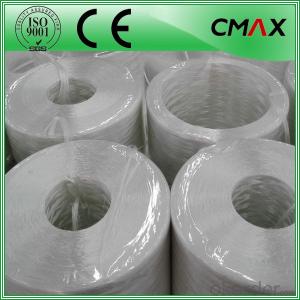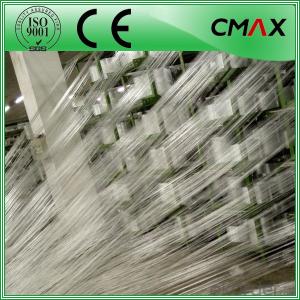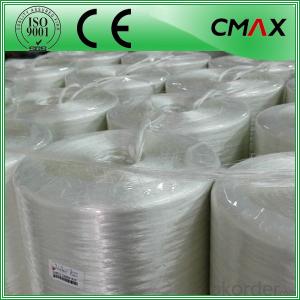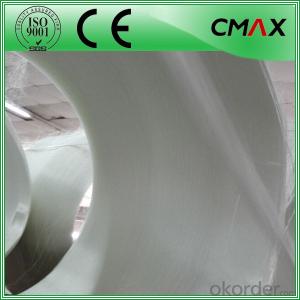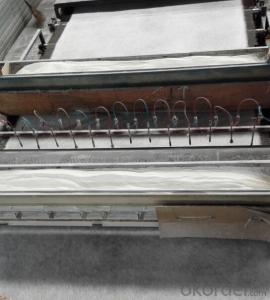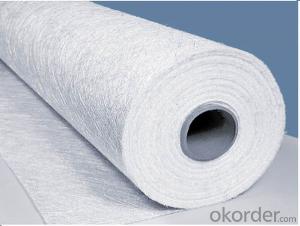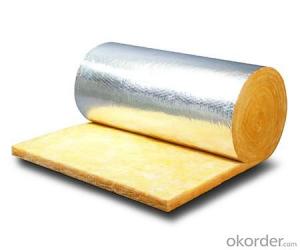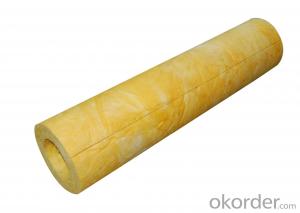Fiberglass Direct Roving for Water Tanks
- Loading Port:
- Shanghai
- Payment Terms:
- TT OR LC
- Min Order Qty:
- 1000 kg
- Supply Capability:
- 1000000 kg/month
OKorder Service Pledge
OKorder Financial Service
You Might Also Like
Fiberglass Direct Roving for Water Tanks
Introduction:
Direct Roving is coated with a silane-based sizing and compatible with unsaturated resin, vinyl resin, and epoxy resin. It is designed for filament winding, pultrusion, and weaving applications.
Direct Roving is suitable for use in pipes, pressure vessels, gratings, and profiles, and the woven roving converted from it is used in boats and chemical storage tanks.
Product Features:
1.Resistant to ozone, oxygen, light and climate change.
2.High strength, high modulus, low shrink, no deformation.
3.Incombustible. heat insulation, heat preservation.
4.Hgher than working temperature, still keep residual strength.
5.Corrosion resistance.
6.Electrical insulation.
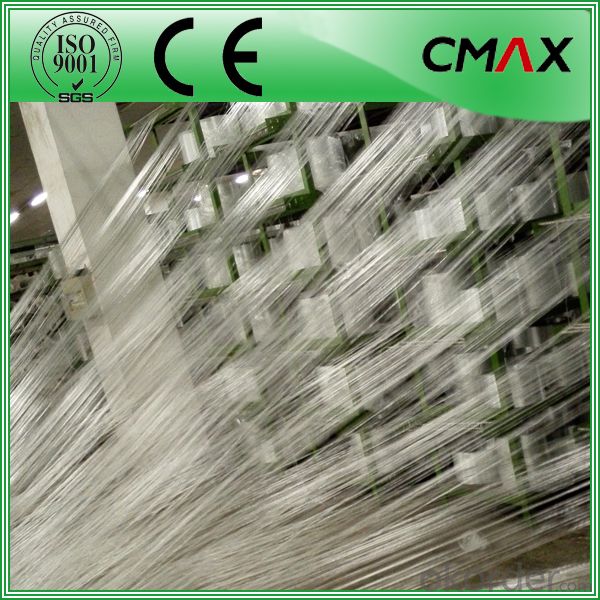
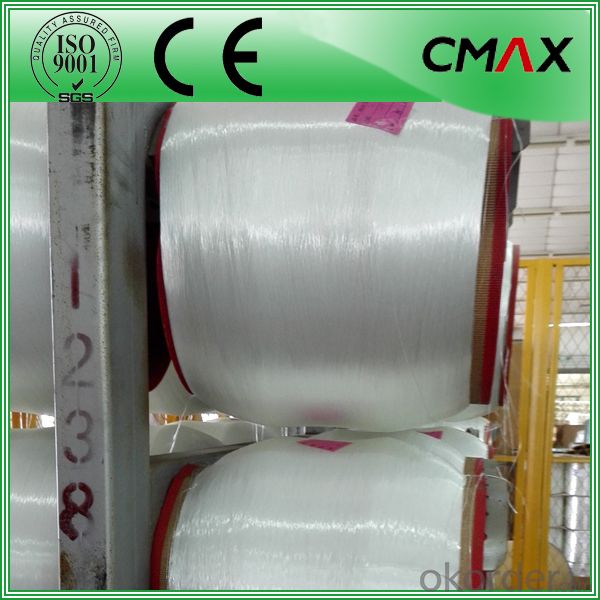
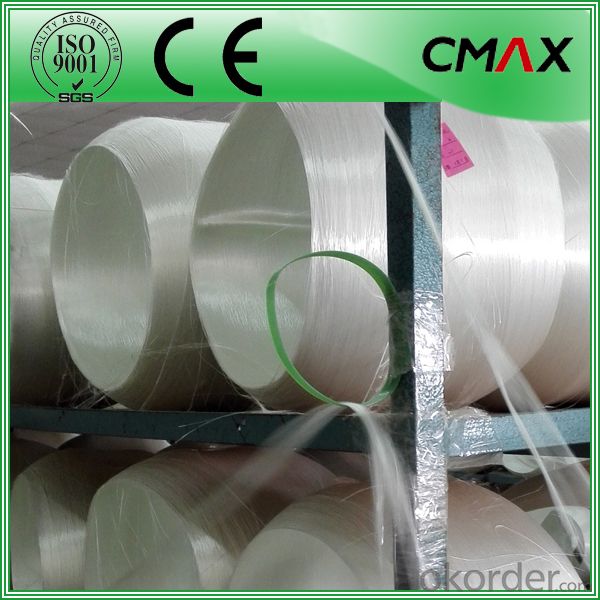
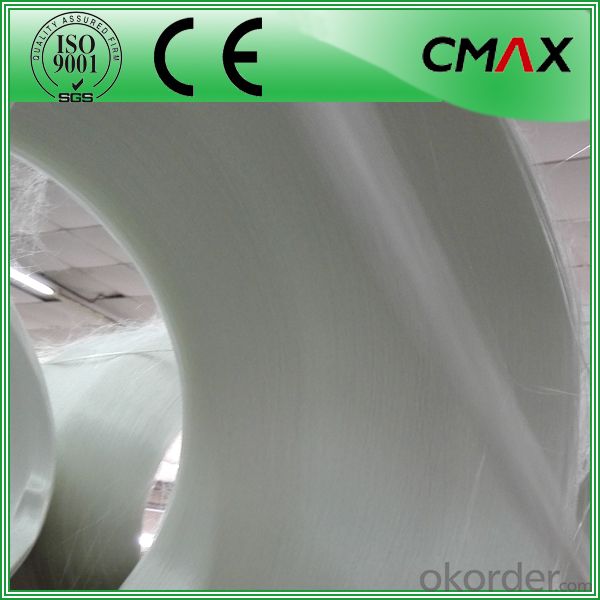
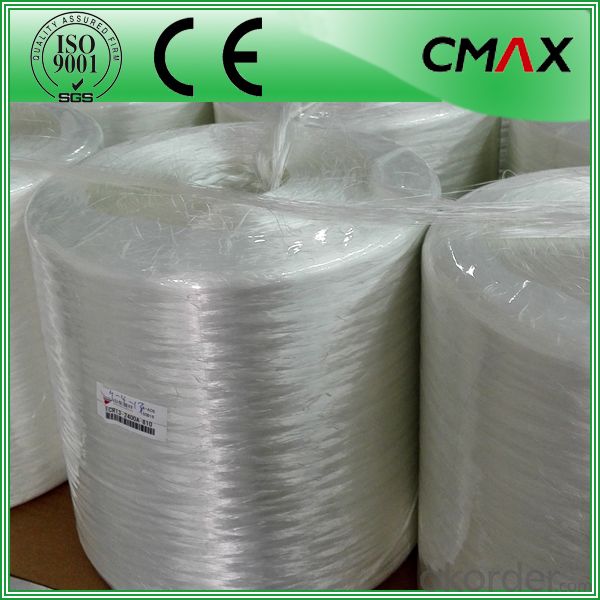
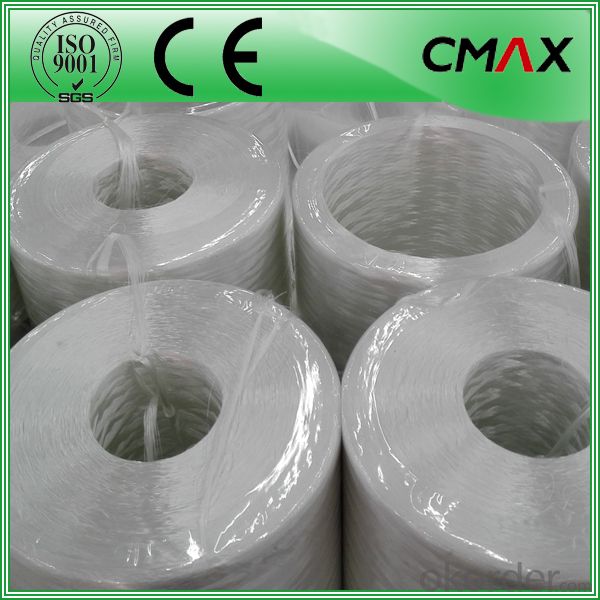
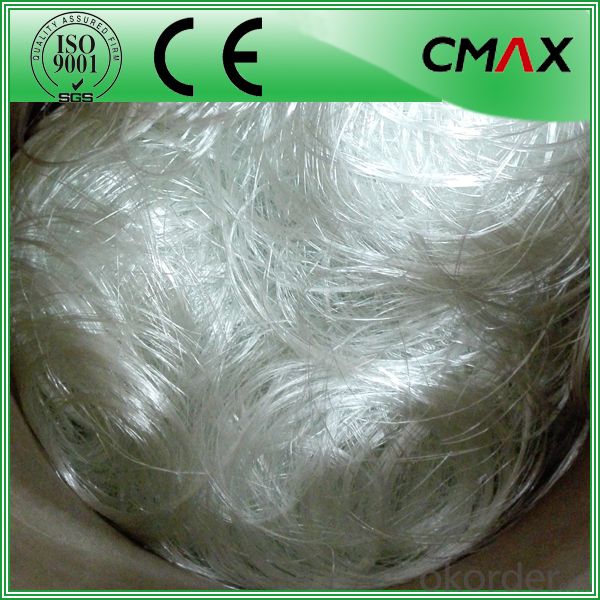
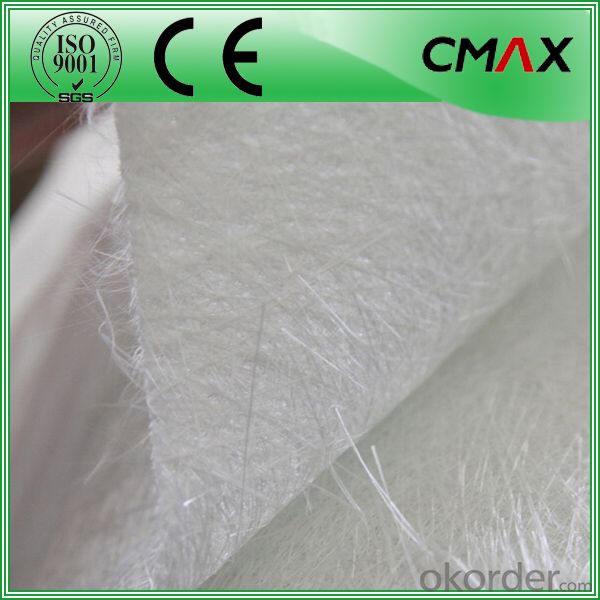
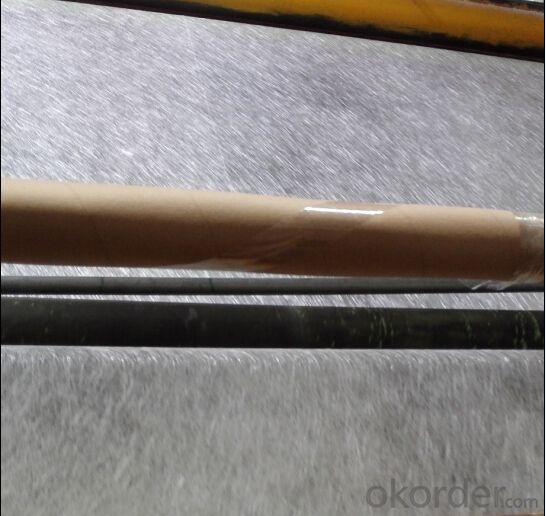
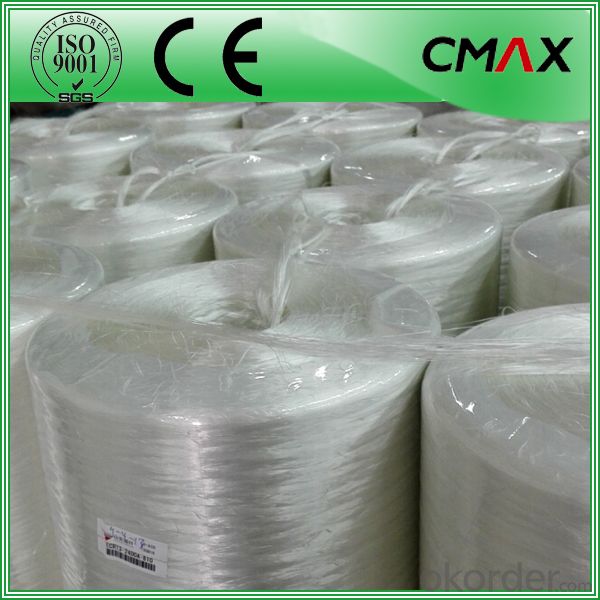
Packaging:
Product is manufactured in form of a roll wrap on a paper tube then after packed in a plastic bag and placed in a cardboard carton. Rolls can be loaded in a container directly or on pallets.
Deposited:
Chopped Strand Mat should be stored in dry, cool, clean and rainproof area. Recommended temperature range of storage is between 15-30 and relative humidity between 40%-70%.
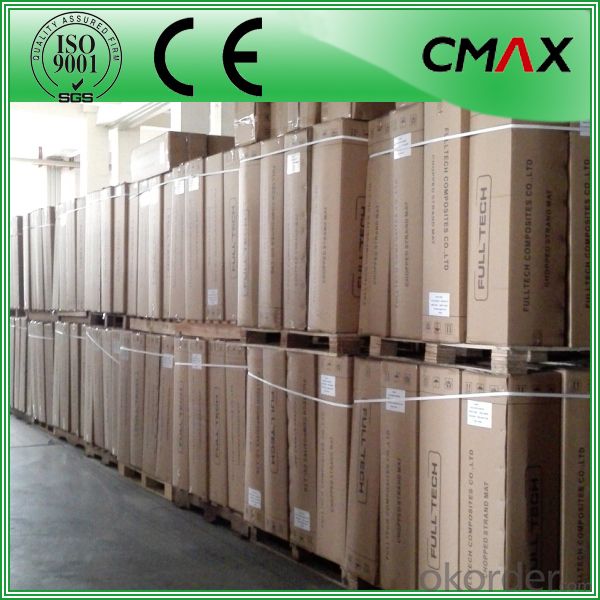
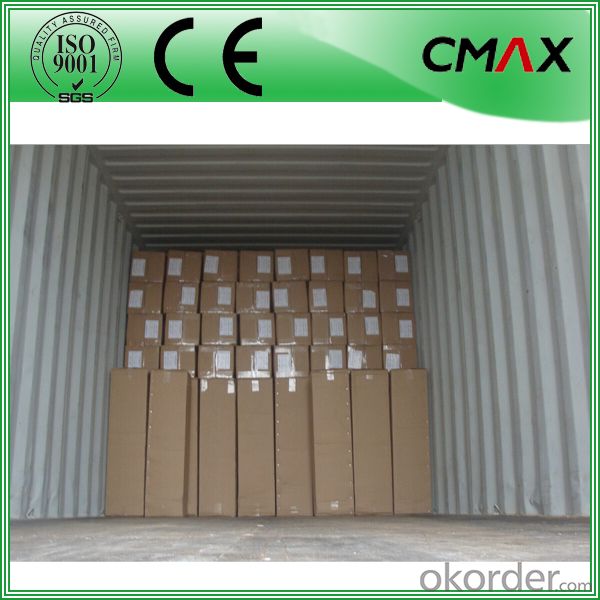
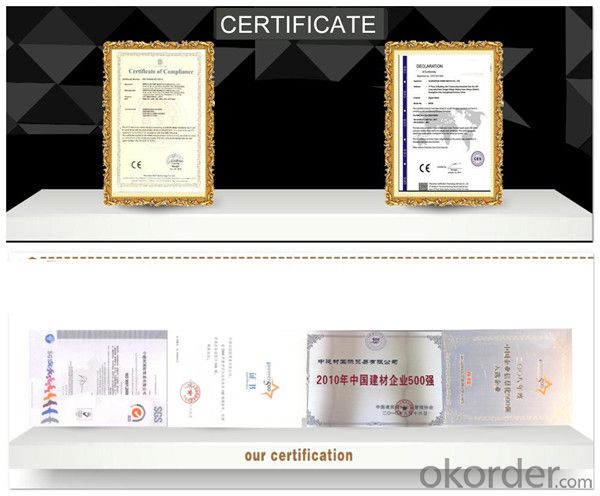
FAQ:
Is sample available ?
Yes, we provide the free samples, but customers themselves need pay the shipping fee
What's your MOQ?
Our MOQ is one 1*20' full container loading
How do you pack the fiberglass
(1) First, the mat is in roll packed in White PE fIlm.
(2) Then the rolls packed in the carton
4.Which knid of payment terms can you accept?
We can accept 30% prepayment, 70% payment before shippment. LC is also accepted
- Q:Is fiberglass mat tissue compatible with different resin systems?
- Fiberglass mat tissue is indeed compatible with different resin systems. This versatile material can be utilized with a variety of resin systems, such as polyester, epoxy, and vinyl ester resins. Its exceptional wet-out properties enable the resin to be absorbed and distributed evenly throughout the mat. Consequently, this compatibility facilitates the fabrication of robust and long-lasting composite structures for numerous industries, including automotive, marine, construction, and aerospace. Nevertheless, it is crucial to carefully assess the unique properties and characteristics of the resin system employed to guarantee optimal performance and compatibility with the fiberglass mat tissue.
- Q:What are the typical roll sizes available for fiberglass mat tissue?
- The typical roll sizes available for fiberglass mat tissue vary depending on the manufacturer and the specific application. However, in general, fiberglass mat tissue is available in roll sizes ranging from 50 inches to 120 inches in width and 100 yards to 1,000 yards in length. These sizes are commonly used in industries such as construction, automotive, and marine for various purposes like insulation, reinforcement, and soundproofing. It is important to note that the availability of specific roll sizes may differ based on the supplier and the intended use of the fiberglass mat tissue.
- Q:Does fiberglass mat tissue have any fire-resistant properties?
- Yes, fiberglass mat tissue does have fire-resistant properties. Fiberglass is inherently fire-resistant due to its composition. It is made from a combination of glass fibers and a thermosetting resin, which gives it its fire-resistant properties. When exposed to high temperatures or flames, fiberglass mat tissue does not easily ignite or burn. Instead, it resists the spread of flames and can help to contain a fire. This makes fiberglass mat tissue a suitable material for applications where fire protection is required, such as insulation, fire barriers, and fireproof panels. However, it is important to note that while fiberglass is fire-resistant, it is not completely fireproof and can still melt or burn under extreme conditions.
- Q:Is fiberglass mat tissue compatible with different adhesives?
- Yes, fiberglass mat tissue is compatible with different adhesives. Fiberglass mat tissue is a versatile material that can be used in various applications such as construction, automotive, and aerospace industries. It is commonly used as a reinforcement material in composites, where it is combined with resin and adhesive to create strong and durable structures. The compatibility of fiberglass mat tissue with different adhesives depends on several factors such as the type of adhesive, the specific application, and the desired performance requirements. Fiberglass mat tissue can be compatible with a wide range of adhesives including epoxy, polyester, vinyl ester, and polyurethane adhesives. It is important to consider the specific properties and characteristics of the adhesive and the fiberglass mat tissue when selecting the adhesive for a particular application. Factors such as curing time, viscosity, bond strength, and chemical resistance should be taken into account to ensure optimal adhesion and performance. In some cases, surface treatment or priming may be necessary to enhance the compatibility between the fiberglass mat tissue and the adhesive. This can involve applying a primer or using a specific surface treatment method to promote adhesion and ensure a strong bond between the two materials. Overall, fiberglass mat tissue is compatible with different adhesives, but it is crucial to consider the specific requirements of the application and select the appropriate adhesive and surface treatment method to achieve the desired results.
- Q:Can fiberglass mat tissue be used for thermal insulation?
- Yes, fiberglass mat tissue can be used for thermal insulation. Fiberglass mat tissue is made from fine glass fibers that are woven together to form a strong and flexible material. It has excellent thermal insulation properties due to its low thermal conductivity and high resistance to heat transfer. Fiberglass mat tissue can be used to insulate walls, roofs, and other surfaces to prevent heat loss or gain. It is commonly used in the construction industry to improve energy efficiency and reduce heating or cooling costs. Additionally, fiberglass mat tissue is fire-resistant, moisture-resistant, and durable, making it suitable for various thermal insulation applications.
- Q:Can fiberglass mat tissue be used for reinforcing fiberglass roofs?
- Yes, fiberglass mat tissue can be used for reinforcing fiberglass roofs. It is commonly used in the construction industry as a reinforcing material for various applications, including roofs.
- Q:What is the expected lifespan of fiberglass mat tissue in outdoor applications?
- The expected lifespan of fiberglass mat tissue in outdoor applications can vary depending on various factors such as exposure to weather conditions, maintenance, and quality of the material. However, on average, fiberglass mat tissue is designed to have a lifespan of around 20 to 30 years in outdoor applications. Fiberglass mat tissue is commonly used for reinforcing and providing strength to surfaces in outdoor applications such as roofing, construction, and automotive industries. It is known for its durability, resistance to moisture, and ability to withstand harsh weather conditions. To ensure a longer lifespan for fiberglass mat tissue in outdoor applications, it is crucial to properly maintain and protect it. Regular inspections, cleaning, and repairs when necessary can help prevent any potential damage or deterioration. Additionally, applying protective coatings or sealants can further enhance its resistance to UV rays, moisture, and other environmental factors. It's important to note that the lifespan of fiberglass mat tissue can vary depending on the specific application and the quality of the material used. Therefore, it is recommended to consult with the manufacturer or a professional in the industry to determine the expected lifespan for a specific project or application.
- Q:Can fiberglass mat tissue be used for electrical enclosures?
- No, fiberglass mat tissue is not suitable for electrical enclosures as it does not provide sufficient insulation properties necessary for electrical safety.
- Q:How does the fiber distribution of fiberglass mat tissue affect its strength?
- The fiber distribution of fiberglass mat tissue plays a crucial role in determining its strength. A more uniform and evenly distributed fiber arrangement enhances the overall strength and structural integrity of the material. This is because the fibers can effectively distribute and share the applied load, preventing localized stress concentrations and potential weak points. In contrast, an uneven or random fiber distribution may lead to areas with fewer or misaligned fibers, reducing the material's overall strength and making it more prone to failure. Therefore, a well-controlled and uniform fiber distribution is essential for maximizing the strength and performance of fiberglass mat tissue.
- Q:What is the thermal stability of fiberglass mat tissue?
- The thermal stability of fiberglass mat tissue refers to its ability to withstand high temperatures without experiencing significant degradation or loss of its physical properties. Fiberglass mat tissue is typically made from woven or non-woven glass fibers, which are known for their excellent thermal resistance. Fiberglass mat tissue can typically withstand temperatures ranging from around 100°C (212°F) to 500°C (932°F) depending on the specific type and composition. At these temperatures, the glass fibers maintain their strength, dimensional stability, and insulation properties. The thermal stability of fiberglass mat tissue is important in various applications where exposure to high temperatures is expected. For example, it is commonly used in the construction industry for insulation purposes in buildings, as it is capable of withstanding the heat generated by HVAC systems or fire. In addition, the thermal stability of fiberglass mat tissue is also crucial in industries such as automotive, aerospace, and marine, where it is used for heat shielding, fire protection, and insulation in engine compartments, exhaust systems, and other high-temperature environments. Overall, the thermal stability of fiberglass mat tissue makes it a reliable and durable material choice for applications requiring resistance to high temperatures. Its ability to maintain its properties under extreme heat conditions ensures long-lasting performance and safety in various industries.
1. Manufacturer Overview |
|
|---|---|
| Location | |
| Year Established | |
| Annual Output Value | |
| Main Markets | |
| Company Certifications | |
2. Manufacturer Certificates |
|
|---|---|
| a) Certification Name | |
| Range | |
| Reference | |
| Validity Period | |
3. Manufacturer Capability |
|
|---|---|
| a)Trade Capacity | |
| Nearest Port | |
| Export Percentage | |
| No.of Employees in Trade Department | |
| Language Spoken: | |
| b)Factory Information | |
| Factory Size: | |
| No. of Production Lines | |
| Contract Manufacturing | |
| Product Price Range | |
Send your message to us
Fiberglass Direct Roving for Water Tanks
- Loading Port:
- Shanghai
- Payment Terms:
- TT OR LC
- Min Order Qty:
- 1000 kg
- Supply Capability:
- 1000000 kg/month
OKorder Service Pledge
OKorder Financial Service
Similar products
New products
Hot products
Hot Searches
Related keywords
